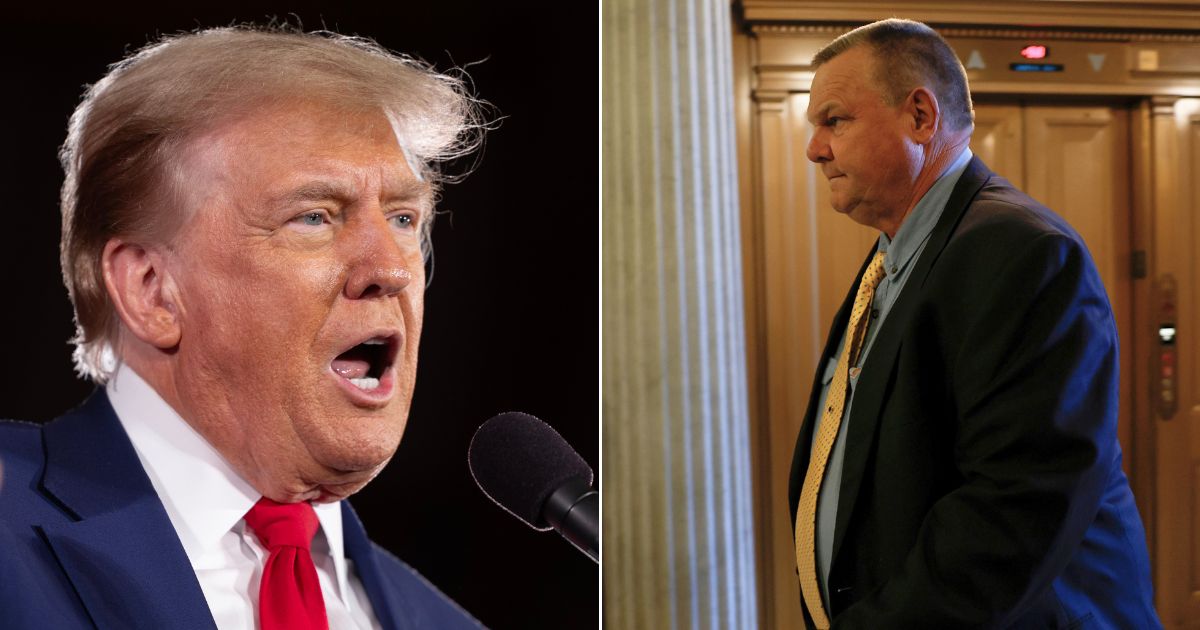Supreme Court rejects transgender student bathroom case
The Supreme Court Refuses to Hear Case on Transgender Student Bathroom Use
In a disappointing blow to the Indiana school district, the Supreme Court announced on Tuesday that it will not take up a case involving a trans-identifying female student who was denied access to the boys’ bathroom.
The student, represented by Indiana’s American Civil Liberties Union (ACLU) chapter, filed a lawsuit against the Metropolitan School District in 2021. The ACLU argued that the student, referred to as A.C., faced discrimination when she was prohibited from using the boys’ bathroom and locker room.
Instead, she was forced to use the girls’ bathroom or a single-person bathroom in the nurse’s office, which was inconveniently located far from her classes. This treatment caused significant harm to the student, according to her parents and the ACLU.
In April 2022, a federal court granted the student and her family a preliminary injunction. The case was later combined with two other cases involving trans-identifying girls who also sued their Indiana school districts over bathroom use. All three students had changed their birth certificates to reflect their male gender identity.
In August, the 7th Circuit Court of Appeals ruled that it would be against state law for the school districts to require these trans-identifying students to use the girls’ bathroom, as they were legally recognized as boys.
With the Supreme Court’s decision to not take up the case, the ruling of the 7th Circuit will stand. This has sparked criticism from Indiana Attorney General Todd Rokita’s spokesperson, who believes the court missed an opportunity to provide clarity.
Despite this setback, the fight for transgender rights continues. The Supreme Court has shown reluctance to intervene in cases involving trans-identifying individuals in recent years, including bathroom disputes and hormone access for trans-identifying inmates.
While several states have implemented laws or policies restricting transgender students’ bathroom use, Indiana’s attempts to pass such legislation have been blocked by Democrats.
What was the Supreme Court’s decision regarding the lower court ruling that allows transgender students to use the restroom that aligns with their gender identity?
Ase regarding the use of bathrooms by transgender students. This decision upholds a lower court ruling that allows transgender students to use the restroom that aligns with their gender identity.
The case originated from the northeastern Indiana school district of Boyertown. A transgender male student, known as John Doe, filed a lawsuit in 2017 after the school district implemented a policy that allowed transgender students to use the bathroom of their choice. Doe argued that this policy violated his right to privacy and created an uncomfortable environment for him.
After a series of legal battles, the case reached the Supreme Court. However, the Court decided not to intervene, leaving the lower court ruling intact. This decision is disappointing for proponents of transgender rights, as it denies an opportunity for the Supreme Court to provide a clear national standard on this issue.
The controversy surrounding transgender bathroom use is not a new one. It has been a hotly debated topic in recent years, with supporters of transgender rights arguing for inclusivity and equality, while opponents express concerns about privacy and potential threats to public safety. This case is an important opportunity to address these concerns and settle the matter definitively.
One of the main arguments from opponents of transgender bathroom use is the potential for abuse. They claim that allowing transgender individuals to use the bathroom that aligns with their gender identity could lead to instances of harassment or assault. However, numerous studies have found no evidence to support these claims. In fact, the American Civil Liberties Union reports that there have been zero reported cases of transgender individuals assaulting others in restrooms.
Furthermore, the Supreme Court has previously ruled on matters related to transgender rights. In 2020, the Court ruled that the Civil Rights Act protects LGBTQ+ individuals from employment discrimination. This decision, combined with the current refusal to hear the bathroom case, suggests that the Court may be sympathetic to transgender rights.
While this decision might be seen as a victory for transgender rights, it is important to remember that the struggle for equality is far from over. The Supreme Court’s refusal to hear this case means that the issue of transgender bathroom use will continue to be decided on a state-by-state basis. This creates a confusing patchwork of laws, leaving many transgender individuals uncertain about their rights.
Furthermore, the issue of transgender rights extends beyond just bathroom use. Transgender individuals face discrimination and mistreatment in various aspects of their lives, from healthcare to housing and employment. It is crucial that these issues are addressed comprehensively to ensure equal rights and protections for all individuals, regardless of their gender identity.
In conclusion, the Supreme Court’s decision not to hear the case on transgender student bathroom use is a disappointing blow to the Indiana school district and to transgender rights advocates. While it upholds the lower court ruling that allows transgender students to use the restroom of their choice, it also perpetuates a lack of clarity and consistency on this issue. Moving forward, it is essential that we continue to fight for equal rights and protections for transgender individuals in all aspects of their lives.
" Conservative News Daily does not always share or support the views and opinions expressed here; they are just those of the writer."





